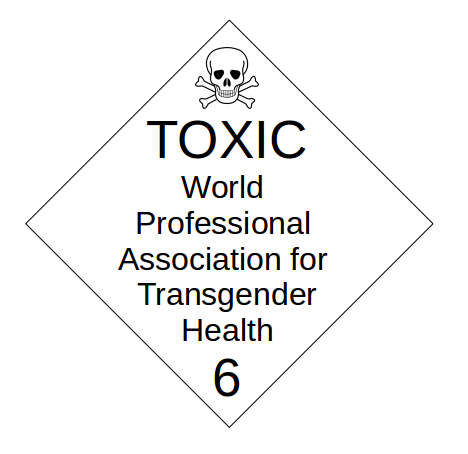Women in the United States are being Fired for Talking About Feminism
And there is no legal protection in place to prevent it

From left to right: Sasha White, Kaeley Triller, Natasha Chart
An assistant literary agent made international headlines this week when she was fired from her job at Tobias Literary Agency in New York. Sasha White, a feminist who had started her career at Tobias as an intern, announced that she had been fired from the agency on Monday for expressing her "feminist stance" on Twitter.
White maintained two Twitter accounts—one professional, and one personal. Her professional account, @SashaSemyonovna, stated her role at Tobias while her personal account, @iamGrushenka, was largely anonymous until recently and states no connection to her former employer. In a statement to reporter Jesse Singal, President of Tobias Literary Agency, Lane Heymont, claimed that White was fired because she "did not specify her views were her own in her Twitter bio, thus suggesting and it was perceived she was speaking on behalf of the agency and those views are not in line with our beliefs. Therefore we had to part ways."
When asked by Singal specifically what tweet violated their policies, Heymont pointed to a retweet White had made on her personal account of a post explaining the difference between how women and trans-women experience male violence.

In an official statement, Tobias Literacy Agency claimed, "We do not have any room for anti-trans sentiments at TLA. Period. Thus, we have parted ways with Sasha." TLA did not clarify what part of Sasha's violating tweets, specifically, included anti-trans sentiment.
In response, feminists began tweeting in support of White, trending #IStandWithSashaWhite, a riff on a previous hashtag in support of another fired feminist, Maya Forstater. Forstater was fired in 2019 from her job at a UK think tank, The Center for Global Development, for similar tweets in support of a feminist analysis of gender. Forstater's case gained global attention in December of 2019 when Harry Potter author J. K. Rowling tweeted in her defense.
White also retweeted multiple of Rowlings tweets, which have been labeled "transphobic" for acknowledging the reality of biological sex and it's impact on women's rights and safety. Rowling followed up on her tweets with a detailed essay explaining her stance.
"I’ve read all the arguments about femaleness not residing in the sexed body," Rowling wrote, "and the assertions that biological women don’t have common experiences, and I find them, too, deeply misogynistic and regressive. It’s also clear that one of the objectives of denying the importance of sex is to erode what some seem to see as the cruelly segregationist idea of women having their own biological realities or – just as threatening – unifying realities that make them a cohesive political class."
For this statement and her tweets, Rowling was blasted in the media as a "TERF" (Trans-Exclusionary Radical Feminist). The term, while inherently contradictory since radical feminists by definition include all female people regardless of gender identity in their feminism, has become a popular way to label and silence dissenting women.
In articles discussing her firing, White was also called a "TERF", despite the fact that the term is considered derogatory towards women and is often accompanied by threats of violence, death, and rape.

White responded publicly to her firing on Tuesday, stating, "I see women as a distinct political class but not to the detriment of others' rights. That is not hateful or bigoted. Does that mean I shouldn't have a job?"
According to a growing number of internet activists, that's exactly what it means.
Women are increasingly being fired for expressing feminist beliefs, even during a global pandemic and recession, as companies cave to internet mobs. White's story has gained widespread attention, but hers is hardly the first. In the United States, women who are accused of being a "TERF" face the risk of being fired—and there are absolutely no legal protections in place to prevent this.
In June, the Supreme Court of the United States ruled that it is illegal for companies to fire an employee based on their "transgender status" (an undefined term). Yet, it is still legal for companies to fire a woman for not subscribing fully to transgenderism, a sexist and regressive ideology which posits that "female" is just a feeling based on feminine stereotypes. Compare this to the legal protections for religious freedom—employees are protected for discrimination both based on their religion, and based on their nonadherence to religion. For women resisting an increasingly religious political dogma, no such protection exists. A man can not be fired for believing he is a woman, but a woman can be fired for believing he's not.
In June of 2019, I was fired from Promptworks, a Philadelphia-based tech agency, in a remarkably similar manner as White. After posting an article on my personal blog criticizing the inherent misogyny behind the new rise of "non-binary" identities, I was fired from my job as a software engineer with no warning and no previous disciplinary record. When I was fired, the company offered me a severance package, including the extension of my healthcare coverage, in exchange for signing a non-disclosure agreement (NDA). The NDA would have prevented me from ever speaking about what the company had done, in exchange for a few thousand dollars and an extra month of healthcare. Promptworks also prevented me from claiming unemployment insurance as retaliation for not signing the NDA, claiming that I was fired "for cause."
In the United States, where health insurance is tied to employment for about half of the population, threatening to withhold healthcare in exchange for silence is especially cruel, and even more so during a global healthcare crisis. I was able to turn down the NDA only because I had prepared for this exact eventuality. I had scrupulously hoarded most of my income each month so that when I was fired I had about six months of expenses saved up. In the United States, though, where women's average annual salary is only 81 percent of men's and where women have one of the highest poverty gaps of developed nations, most women could probably not afford to say no.
I spoke with one woman, who agreed to be interviewed on the condition of anonymity, who was fired in 2019 from a job she had held for over a decade because of her weekend feminist activism. There had been no prior performance complaints against her, and her direct supervisor had been aware of her activism. However, she was forced out of her job after external pressure mounted from trans activists who threatened her and the company. She says that she signed an NDA to protect the safety and security of her family, including her children. "My family finances would have been absolutely destroyed if I suddenly had no income," she told 4W, "My family was on my insurance." In exchange for signing the NDA, she says the company paid her a "pathetic" severance package, and agreed to extend her family's health insurance for six months. A year later, she's still unemployed.
It's unclear how many more women's stories like this exist, shrouded in secrecy by predatory NDAs that muzzle the victims of sexist discrimination. While freedom of speech is protected in the United States, this protection only extends to government intervention. Companies are free to do as they wish in response to political speech they disagree with, which, in the age of internet cancel culture, means free speech is increasingly only for the rich. The majority of women can not afford to be fired over a controversial tweet or blog post. In addition to risking their own income, women who speak out in their own name also risk the security of their families and children, their access to healthcare, and often even their own safety. Many of the women mentioned above have faced death and rape threats, doxxing, stalking, and even physical assault due to their feminism.
To be able to afford this risk, to be able to pay rent next month without a job and to not worry about how your children will eat, is an incredible privilege that most women don't have. Under capitalism, this means they do not genuinely have the freedoms our country was founded on, and it's particularly ironic that these attacks on women's livelihoods largely come from the left.
Deplatforming, banning, firing mainly working class people from thier jobs are all forms of weaponizing capitalism.
— andypandy (@andymarie23) August 25, 2020
They fail to see how far that is from socialism.
Women being fired for feminist stances isn't a new phenomenon—it's just recently that the public is starting to hear about these cases.
In 2016, Kaeley Triller, a mother and survivor of child sexual abuse, was fired from her job at the YMCA of Pierce and Kitsap Counties in Washington state. After the YMCA announced that they would be allowing men to use the women's locker rooms, Triller pushed back, arguing that the new policy would put women and girls at risk of abuse. According to The New American, her manager replied by telling Triller that she was being "closed-minded". Triller followed up by writing a blog post for The Federalist in which she outlined her story of sexual trauma and how she saw it relating to the transgender bathroom debate. Although she did not mention the YMCA, her role there, or it's new policy in her article, Triller was fired a week later.
Natasha Chart, who now serves as the board chair of Women's Liberation Front (WoLF), was fired from her job at Rewire.News (formerly RH Reality Check) in 2015 due to her feminist stance against the sex industry. She was accused of "bigotry" for saying that she did not agree with legalizing the sex trade or the sale of minors for sex, ideas that have been widely shared in feminist discourse since the 19th century.
"This stands in contradiction of principles of women's human rights that were widely supported less than 20 years ago," Chart told the Christian Post in 2018, "and portends the erasure of very old rights everyone has come to take for granted. I think this is an emergency."
Mainstream media in the United States, however, have largely ignored the crisis threatening women's freedom of speech. If anything, publications like the New York Times and Washington Post, supposedly institutions that protect our Democracy, have participated in the pile-on against feminists. No mainstream US publication, to my knowledge, has ever covered the women who have been fired for simply speaking out in defense of feminist ideals. Their stories have largely spread on niche blogs, across Twitter, and on feminist and "free speech" sites and forums.
True feminists, those who fight to defend women and girls from male violence, those who resist patriarchal notions of gender, and those who stand up against an industry of sexual exploitation, have never been popular. Throughout history, these women have been largely derided in their time, only to be hailed as heroes after their deaths. Today's feminism is no different. The mainstream "feminists" who support male notions of womanhood and sexuality are praised as "progressive" while actual feminists are assaulted, harassed, cancelled, and fired. But as the backlash against the firing of Sasha White demonstrates, a tipping point is coming in the United States.
When it does, which side will you be on?
Do you want to bring the "gender madness" to an end? Help us write about it! 4W is able to pay our all-female staff and writers thanks to the generous support of our paid monthly subscribers.
Enter your email below to sign in or become a 4W member and join the conversation.
(Already did this? Try refreshing the page!)





Comments